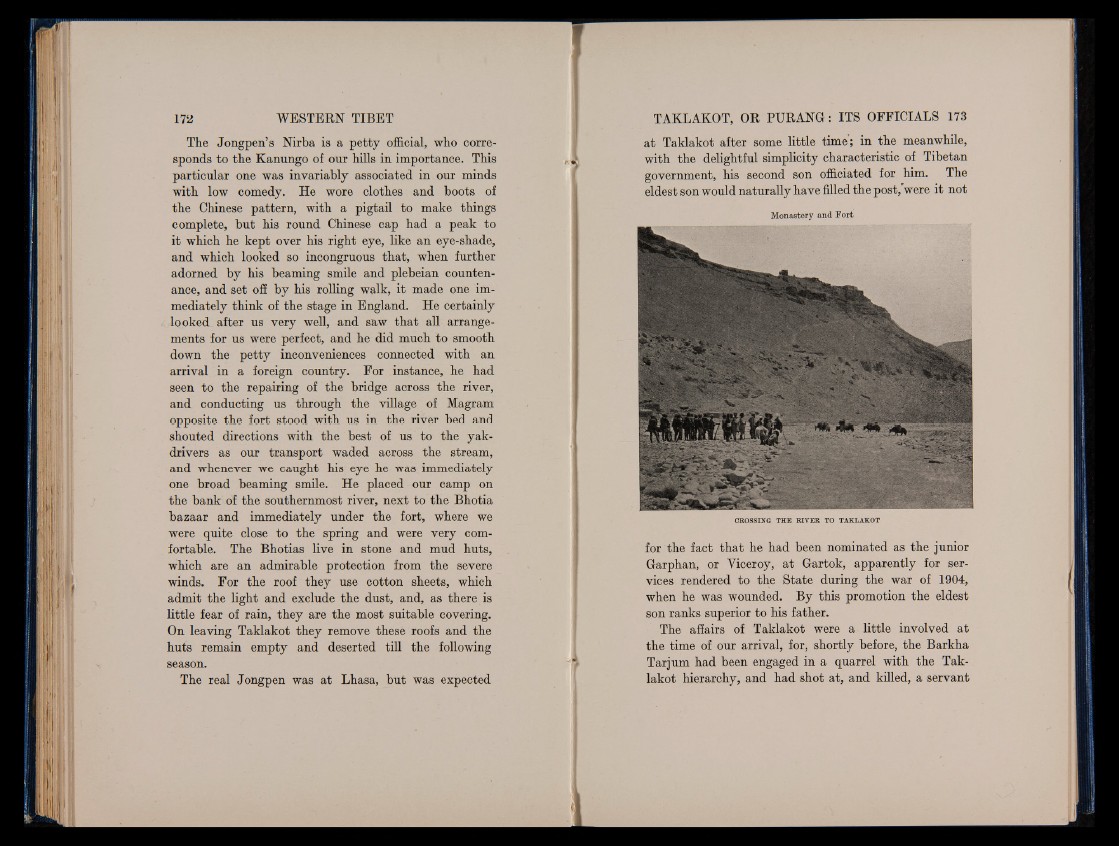
The Jongpen’s Nirba is a petty official, who corresponds
to the Kanungo of our hills in importance. This
particular one was invariably associated in our minds
with low comedy. He wore clothes and boots of
the Chinese pattern, with a pigtail to make things
complete, but his round Chinese cap had a peak to
it which he kept over his right eye, like an eye-shade,
and which looked so incongruous that, when further
adorned by his beaming smile and plebeian countenance,
and set off by his rolling walk, it made one immediately
think of the stage in England. He certainly
looked after us very well, and saw that all arrangements
for us were perfect, and he did much to smooth
down the petty inconveniences connected with an
arrival in a foreign country. For instance, he had
seen to the repairing of the bridge across the river,
and conducting us through the village of Magram
opposite the fort stood with us in the river bed and
shouted directions with the best of us to the yak-
drivers as our transport waded across the stream,
and whenever we caught his eye he was immediately
one broad beaming smile. He placed our camp on
the bank of the southernmost river, next to the Bhotia
bazaar and immediately under the fort, where we
were quite close to the spring and were very comfortable.
The Bhotias live in stone and mud huts,
which are an admirable protection from the severe
winds. For the roof they use cotton sheets, which
admit the light and exclude the dust, and, as there is
little fear of rain, they are the most suitable covering.
On leaving Taklakot they remove these roofs and the
huts remain empty and deserted till the following
season.
The real Jongpen was at Lhasa, but was expected
at Taklakot after some little time’; in the meanwhile,
with the delightful simplicity characteristic of Tibetan
government, his second son officiated for him. The
eldest son would naturally have filled the post, were it not
Monastery and Fort
CROSSING THE RIVER TO TAKLAKOT
for the fact that he had been nominated as the junior
Garphan, or Viceroy, at Gartok, apparently for services
rendered to the State during the war of 1904,
when he was wounded. By this promotion the eldest
son ranks superior to his father.
The affairs of Taklakot were a little involved at
the time of our arrival, for, shortly before, the Barkha
Tarjum had been engaged in a quarrel with the Taklakot
hierarchy, and had shot at, and killed, a servant